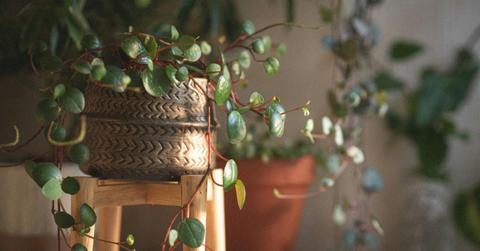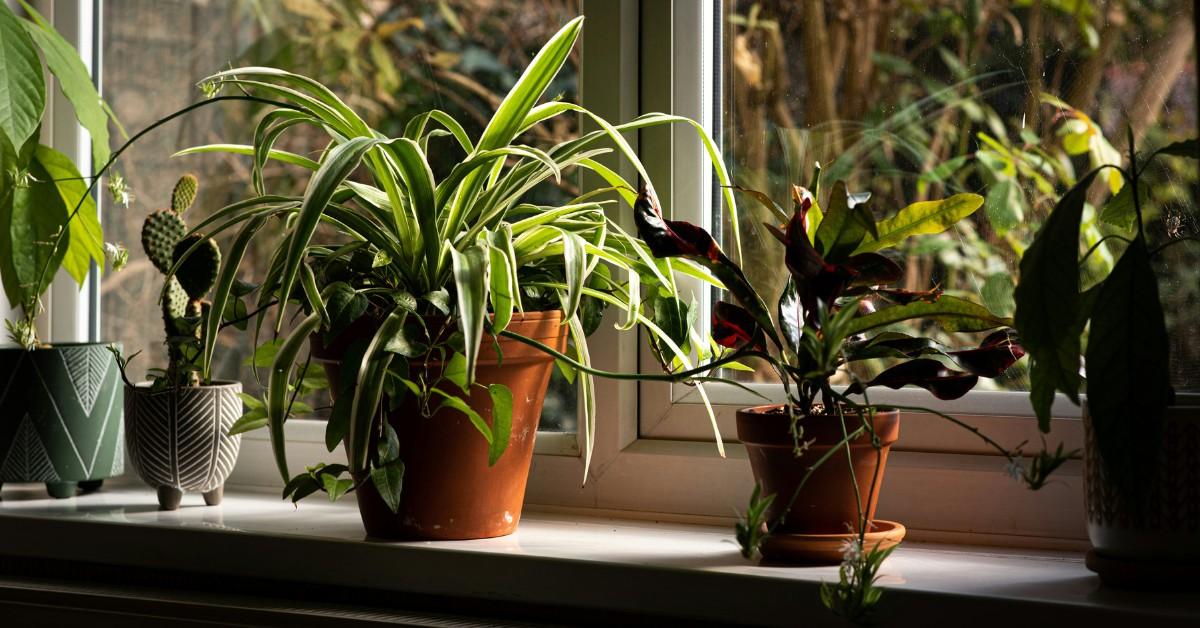Everything You Need to Know about Epsom Salt, Your Garden’s Secret Weapon
Not every plant will benefit from an added dose of Epsom salt.
Published Oct. 24 2024, 9:00 a.m. ET

Epsom salt is a go-to for many people when they're looking to help boost their own personal health. But did you know that many people also turn to the mineral when they're looking to improve the well-being of their plants?
In fact, some folks swear by the benefits of using Epsom salt as part of their routine plant care.
But is spraying Epsom salt on your houseplants a good idea or a bad one? Take a look at what the pros have to say about the unusual gardening hack and learn when it's the right (and wrong) move for your plants.

Is spraying Epsom salt on houseplants good or bad?
When it comes to spraying your house with Epsom salts, the pros at the Gardening Know How website say that dousing your plants in a mist of water and Epsom salt can help cure what ails them... when their problem is a magnesium deficiency, that is.
According to the website, Epsom salt is largely made from the compound magnesium sulfate. These two ingredients are very important to keeping your plants healthy.
A plant's soil can get depleted over the years and begin to lose some of these essential nutrients, leaving plant parents with no other choice but to add them back in themselves. A popular way to do that is by dissolving some Epsom salt into a spray bottle filled with water — mix 1 tablespoon of the salt in 1 gallon of water, storing the excess in another container for the best results — and spraying the mix onto the leaves of your plants.
Gardening Know How says this method is known as a foliar spray, and it helps your plant quickly absorb the nutrients through their leaves instead of applying the mix to the soil and waiting for the roots to take it up and distribute it throughout the foliage.
Does Epsom salt expire when used for plants?
If you notice that your bag of salt is past its "good by" date the next time you reach for it, don't worry. Aged Epsom may still contain some of those nutrients your plants need, albeit in a diminished capacity.
That's because the magnesium sulfate in the salt loses some of its potency as the years go by, according to the Ecowiser website. That being said, if it's only a little past its expiration date it may still do the trick and offer your plants a magnesium boost.
Does Epsom salt help pale leaves on cucumber plants?
If you've noticed that some of your cucumber plant's leaves have started to turn yellow or fade, a magnesium deficiency may be to blame. According to The Rusted Garden blog, adding a bit of the salt to your soil can help. You can mix 2 tablespoons of the salt in 1 gallon of water to create a foliar spray, or add the mix directly to the soil.
If your cucumber's leaves are turning pale for a different reason, the added salt won't address the problem, but it shouldn't hurt the plant either.
Which plants don't like Epsom salt?
Not every plant needs (or wants) a lot of magnesium. According to HGTV, you should avoid applying the salt (or any mixes containing the salt) to plants like tropical palms, beans, coniferous trees, leafy veggies, or any carnivorous plants.
You should also avoid adding the mix to your plant care routine without first verifying that your soil is magnesium deficient. Plant parents are unlike to experience the benefits of the mix if their soil is already chock full of the nutrient.